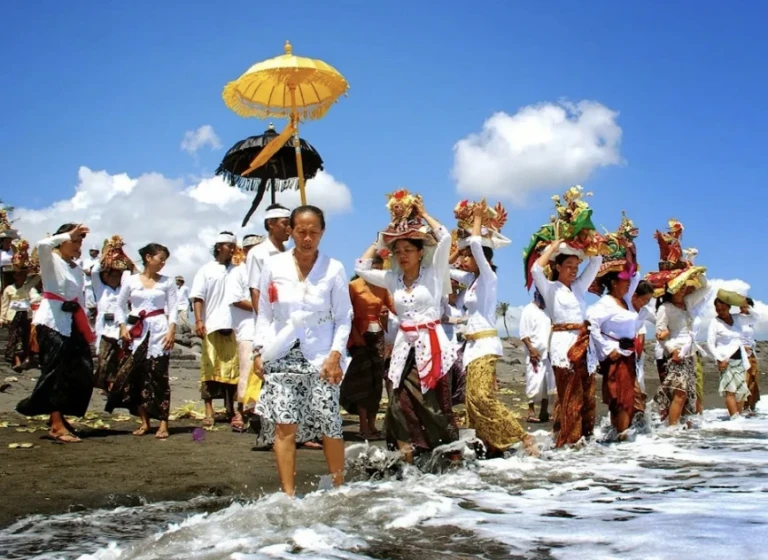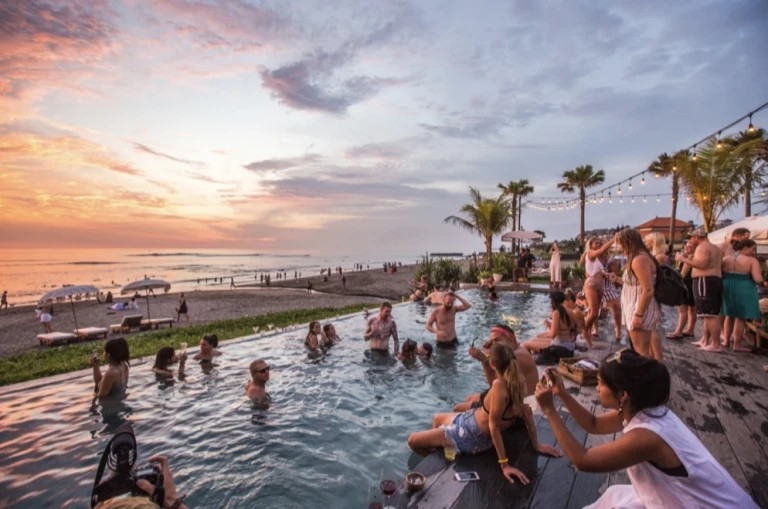The 10th World Water Forum, which will take place in Bali from May 18 to 24, 2024, will begin with a water purification ritual. The Melasti ceremony will be attended by 1500 people. They will gather at Melasti Beach on May 18, a day before the formal dinner and opening.

Bali's sacred water purification (Melukat) aims to cleanse oneself from physical and spiritual impurities, restore energy balance, ensure safety and health, and harmonize relationships with nature.
In addition to the water purification ceremony, delegates of the water forum will also be offered a visit to the Jatiluwih rice terraces, recognized as a UNESCO World Heritage Site. The day they will go on this tour has not been announced yet.
These rice terraces are included in the program not only because they are considered the most beautiful in Bali, but also because it is here that guests will be introduced to the intricately organized irrigation system called Subak. It is a water resource distribution principle that allows rice to be harvested 3-4 times a year. Thanks to a carefully designed system of channels, dams, and waterfalls, water flows from mountain rivers and ensures continuous irrigation. This allows farmers to minimize dependence on drought or other climate change consequences.
Organizers hope that acquainting delegates with the traditions of Bali will not only allow them to delve deeper into the culture and history of the island but also inspire new solutions to water resource management issues worldwide.
The theme of the 10th World Water Forum reflects this: "Balanced use of water resources for sustainable global development."
The Indonesian government has invited 44 heads of state and government to the forum. In total, according to preliminary estimates, about 50,000 delegates from different countries will participate in the forum. These include climatologists, water resource experts, and policymakers. They will be able to attend 290 parallel sessions or events dedicated to crucial water-related topics such as "water security and prosperity," "water for people and nature," "disaster risk reduction and management," "government management," "water cooperation and diplomacy," and "sustainable water supply financing." Discussions on innovations that can be applied in this field are also expected.
Fifty thousand guests are quite a lot, considering that the tourist season on Bali typically begins at the end of May. Therefore, travelers should take this into account and be aware that from May 18 to 24, the island will be more crowded than usual. This means that hotels may be fully booked, and popular attractions may have long queues. Traffic jams are also possible, as even the organizers themselves warn. So it's better to plan ahead and book everything if your Bali vacation cannot be rescheduled for other dates.
Meanwhile, officials promise to work round the clock during the forum days. This decision was made to ensure smooth conduct of all events for the delegates without significantly disturbing local residents and tourists.
Firdaus Ali, a special official from the Ministry of Public Works and Housing (PUPR) in the field of water resources, said: "The meeting in Bali will be a monumental gathering that will change the entire policy and develop enthusiasm to collectively look to the future, turning water into a source of life, not a source of disaster."
Another significant event that the forum will be remembered for is the grand opening of the Water Museum in Tabanan. It is located near the Subak Rice Museum, has been under construction since the end of last year, and occupies over six hectares.
Details about when and how mass tourists will be able to visit have not been announced yet. It is promised that information will be available closer to the opening date.

You can add one right now!